|

|
Second
Meeting of the Conference of the Parties of the Stockholm
Convention
|
|
|
Highlights for Wednesday, 3 May 2006
In the morning, delegates met in plenary to hear progress reports from contact groups and to discuss agenda items on national implementation plans (NIPs) and technical assistance. In the afternoon, delegates convened in plenary to address synergies within the chemicals and waste cluster. A contact group on financial resources met in the morning, while a contact group on effectiveness evaluation convened throughout the day. In the evening, delegates met in contact groups on technical assistance and synergies.
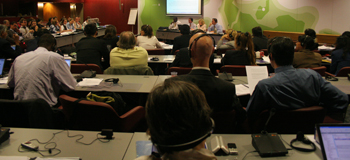
|
Plenary: Implementation Plans
| |
|
|
|
|
|
|
| |
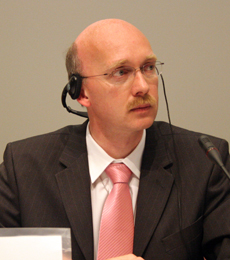 |
|
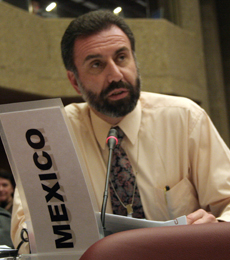 |
|
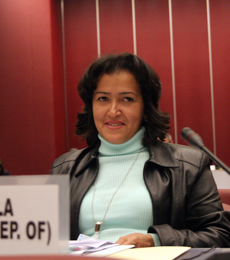 |
|
| |
Interim President Jan-Karel Kwisthout chaired the discussion on NIPs. |
|
José Ernesto Navarro (Mexico) commented that their NIP was not yet finalized, but reported on parallel efforts to eliminate POPs through the North American Agreement on Environmental Cooperation
|
|
Anabell Arvelaez (Venezuela) advocated drawing on existing regional expertise and strengthening regional cooperation. |
|
| |
|
|
|
|
| |
|
|
|
|
| |
Saadeldin Ibrahim Izzelciin (Sudan) said that his country's NIP is in the final phase of completion, and will be submitted within the next three months. |
|
Therese Yarde (Barbados) drew attention to delays in receiving financial and technical assistance, which have hindered NIPs development in the Caribbean. |
|
| |
|
|
|
|
Plenary: Technical Assistance
| |
|
|
|
|
| |
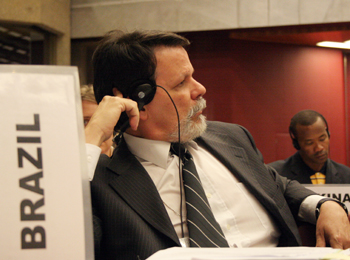 |
|
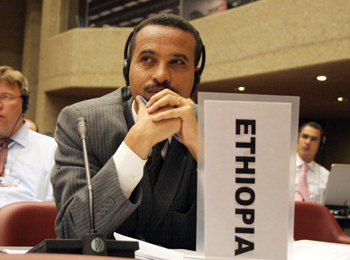 |
|
| |
Dessalegne Mesfin (Ethiopia - above right), supported by Antônio Pedro (Brazil - above left), proposed wording that explicitly calls for information sharing on experiences providing technical assistance for developing countries in implementing NIPs and Convention obligations. |
|
Plenary: Synergies
| |
|
|
|
|
|
|
| |
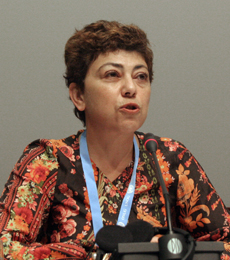 |
|
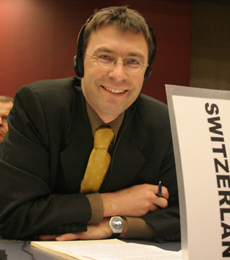 |
|
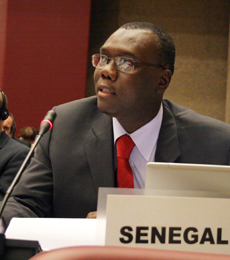 |
|
| |
Monique Barbut (UNEP Division of Technology, Industry and Economics, Stockholm Convention Secretariat, and Rotterdam Convention Secretariat) reported on the Secretariat’s study on improving cooperation and synergies among the Secretariats of the Basel, Rotterdam and Stockholm Conventions (UNEP/POPS/COP.2/INF/12). |
|
Franz Xavier Perrez (Switzerland) noted the need to act soon to avoid decisions being imposed on parties to the Stockholm Convention by others. |
|
Ibrahima Sow (Senegal) supported the promotion a life-cycle approach with regard to synergies and underlined that the chosen options should not weaken any of the three Conventions. |
|
| |
|
|
|
|
| |
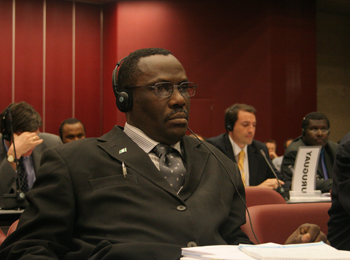 |
|
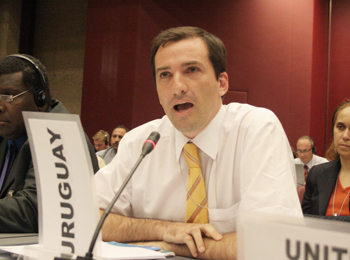 |
|
| |
Oludayo Dada (Nigeria) proposed that the contact group develop the process of achieving synergy and cautioned against rushing to take decisions on establishing a common secretariat. |
|
Fernando Lugris (Uruguay) called for clearly defining "synergy" and drew attention to existing regional networks. |
|
| |
|
|
|
|
| |
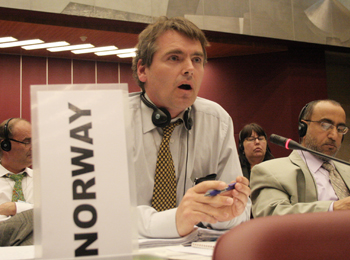 |
|
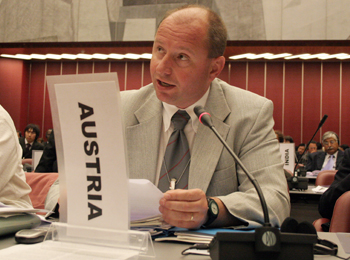 |
|
| |
Henrik Eriksen (Norway) said that a common figurehead could better attract financial resources and promote common efforts and interests in the chemicals and wastes cluster. |
|
Thomas Jakl (Austria, on behalf of the EU) called for a stepwise approach to synergies among the Rotterdam, Stockholm and Basel Conventions and proposed an informal preparatory meeting to be held this summer. |
|
| |
|
|
|
|
|
|
| |
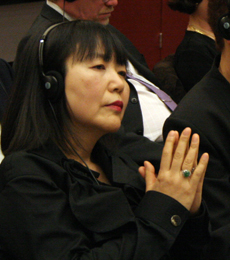 |
|
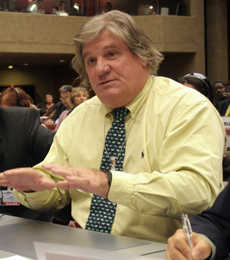 |
|
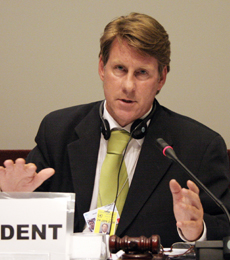 |
|
| |
Sachiko Kuwabara-Yamamoto (Executive Secretary, Basel Convention) reported on the results of the 5th Session of the OEWG for the Basel Convention. |
|
Cristián Maquieira (Chile) advocated separating administrative from substantive issues when considering synergies between the Rotterdam, Stockholm and Basel Conventions. |
|
COP-2 President Kiddle noted that the enhancement of governance structures is a difficult task, and suggested that options for achieving administrative and management-level synergies are available. He said that this COP should take action. |
|
Contact Group: Effectiveness Evaluation
| |
Effectiveness evaluation contact group Co-Chair Bo Walhstrom (below, upper left) reported that the group had divided into two subgroups to address elements of a draft decision and the modalities of an effectiveness evaluation panel. Following concerns by many countries, delegates agreed that the contact group would continue deliberations as a single group to ensure adequate developing country participation.
|
|
| |
|
|
|
|
| |
|
|
|
|
Contact Group: Financial Resources
Contact Group: Technical Assistance
The technical assistance contact group was co-chaired by Frederik Sikabonjo (Namibia) and Karel Blaha (Czech Republic). Delegates discussed guidance on technical assistance (UNEP/POPS/COP.2/14). |
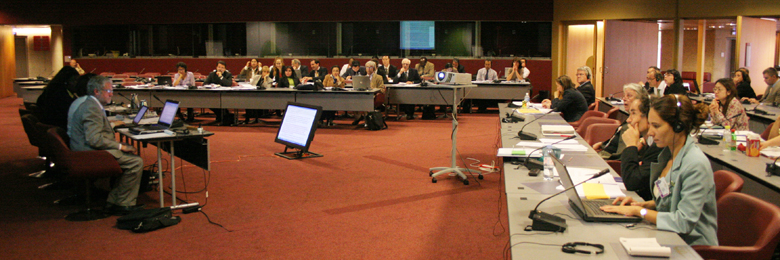 |
| |
Contact Group: Synergies
The contact group on synergies, co-chaired by Anne Daniel (Canada - below left) and Osvaldo Alvarez (Chile - below right), met throughout the evening. Delegates worked on an EU-proposed draft decision (UNEP/POPS/COP.2/CRP.3), focusing on operative paragraphs. |
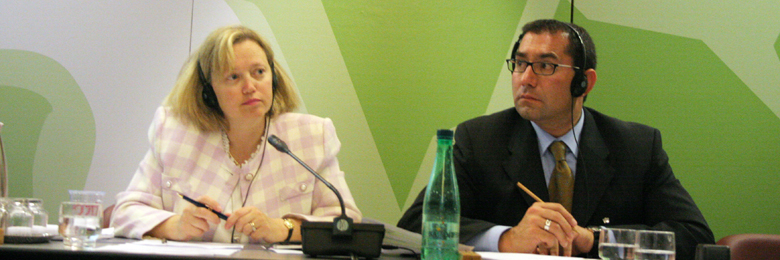 |
| |
|